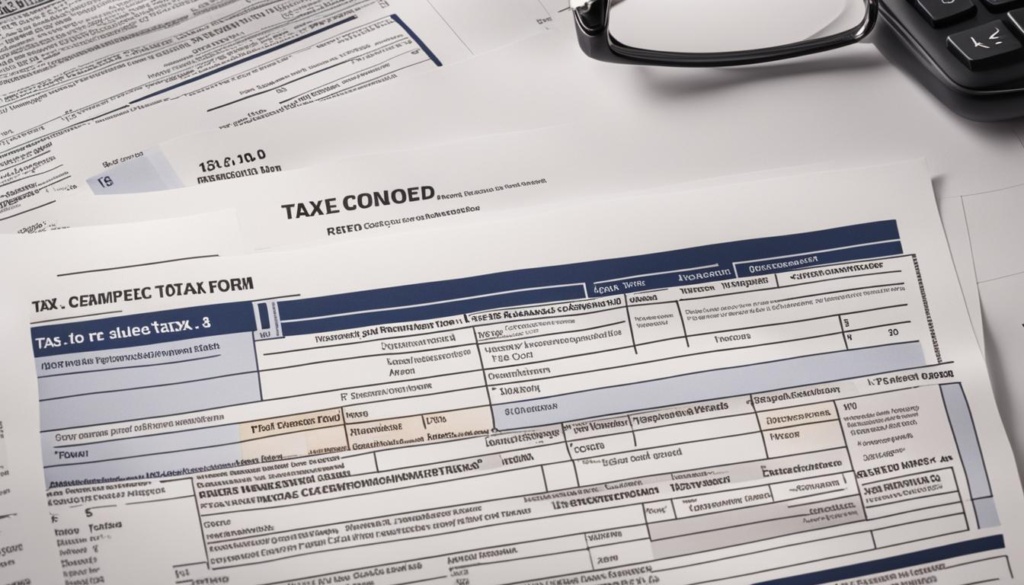In Argentina, understanding the various types of taxes is essential for individuals and businesses alike. From income tax to value-added tax, corporate tax to property tax, Argentina has a comprehensive tax system in place.
At the federal, provincial, and municipal levels, taxes are levied to ensure the funding of essential public services and infrastructure. It is important to grasp the different tax types to ensure compliance and make informed financial decisions.
In this article, we will delve into the intricacies of Argentina’s tax system, exploring the various tax types, their rates, and how they affect individuals and businesses.
Federal Taxes in Argentina
To understand the tax system in Argentina, it is essential to delve into the various types of taxes imposed at different levels. At the federal level, taxes are imposed on income, profit, and capital gains. Let’s explore these federal taxes in more detail.
Income Tax
Income tax is collected solely by the Government of Argentina. It is levied on personal income and business income (corporate tax) at progressive and flat rates, respectively. The progressive rates for personal income ensure that higher earners contribute a larger portion of their income, while the flat rate for business income facilitates a simplified tax collection process.
Value-Added Tax (VAT)
Argentina imposes a value-added tax (VAT) on the net price of transactions. This tax is charged on the added value at each stage of production and distribution, ensuring that the ultimate consumer bears the burden. VAT is a significant source of federal revenue and applies to a wide range of goods and services. Additionally, there are excise taxes on specific goods and services, which further contribute to the federal tax revenue.
Property Tax
Property tax rates in Argentina vary by province. This tax is levied on the value of real estate properties, including residential, commercial, and industrial properties. Property tax helps generate revenue for the federal government and is an important component of the overall tax system.
“The federal level in Argentina imposes taxes on income, profit, and capital gains.”
Now, let’s take a closer look at the federal tax rates in Argentina. Please refer to the table below:
| Tax Type | Tax Rate |
|---|---|
| Income Tax | Progressive rates |
| Corporate Tax | Flat rate |
| Value-Added Tax (VAT) | Varies depending on the transaction |
| Property Tax | Varies by province |
The table provides an overview of the tax rates for different federal taxes in Argentina. It is important to note that these rates may vary depending on specific circumstances and legislative changes. Consultation with a tax professional is recommended for accurate and up-to-date information.
Understanding federal taxes in Argentina is crucial for individuals and businesses operating within the country. By complying with these tax regulations, taxpayers contribute to the overall economic development and welfare of Argentina.
Provincial Taxes in Argentina
Just like federal taxes, each province in Argentina levies its own set of provincial taxes. These taxes can encompass turnover tax, real estate tax, gross income tax, and various other fees specific to each province. Turnover tax rates typically vary across provinces, with an average rate of 3-5%. On the other hand, real estate tax rates are determined by provincial legislation.
Here’s an overview of the provincial taxes in Argentina:
1. Turnover Tax:
– Average rate: 3-5%
– Applies to: Business transactions within the province
– Varies by province
– Helps generate revenue for provincial governments
2. Real Estate Tax:
– Rates set by provincial legislation
– Based on property value
– Helps fund local infrastructure and services
– Varies by province
3. Gross Income Tax (where applicable):
– Applies to: Individuals and businesses with significant income within the province
– Levied on gross income, before deductions or exemptions
– Helps fund provincial programs and services
Provincial taxes play a crucial role in financing the operations and development of provinces in Argentina. The revenue generated from these taxes is essential for funding local initiatives, maintaining infrastructure, and providing public services.
With its diverse economy and varying tax laws, Argentina’s provincial taxes contribute significantly to the financial landscape of the country. Understanding these taxes is vital for individuals and businesses operating within specific provinces.
Note: The image above illustrates the concept of provincial taxes in Argentina, highlighting the diverse nature of these taxes across the different provinces. It visually enhances the understanding of provincial tax systems and their significance in Argentina’s economy.
Municipal Taxes in Argentina
Municipalities in Argentina have the authority to levy various municipal taxes to fund local services and infrastructure. These taxes, also known as municipal fees, are imposed on property owners and residents within the municipality’s jurisdiction.
Some common types of municipal taxes in Argentina include fees for lighting, garbage collection, street maintenance, and sewage services. These fees are essential for ensuring the provision of basic amenities and maintaining the quality of life in urban areas.
The specific fees and rates for municipal taxes in Argentina vary from one municipality to another. They are determined based on factors such as property value, location, and construction details. Property owners and residents are required to pay these taxes on a regular basis to support the maintenance and improvement of municipal services.
Municipal taxes are typically assessed annually and can be included in the property tax bill or billed separately. The funds generated from these taxes are used by municipalities to cover the costs associated with maintaining infrastructure, providing public services, and implementing local development projects.
Here is an example of how municipal taxes in Argentina may be structured:
| Tax Type | Rate |
|---|---|
| Garbage Collection Fee | $50 per month |
| Lighting Fee | $20 per month |
| Street Maintenance Fee | 0.5% of property value |
| Sewage Service Fee | $30 per month |
These are just illustrative examples, and the actual municipal taxes and rates may vary depending on the municipality. It is important for property owners and residents to familiarize themselves with the specific requirements and obligations related to municipal taxes in their respective jurisdictions.

Understanding the Importance of Municipal Taxes
Municipal taxes play a crucial role in financing local government operations and services. They provide the necessary funds for municipalities to deliver essential services such as waste management, street maintenance, lighting, and other infrastructure projects that contribute to the overall well-being of residents and the development of urban areas.
By paying their municipal taxes, property owners and residents contribute directly to the improvement and sustainability of their local communities. These taxes ensure that municipalities have the financial resources needed to address the evolving needs and demands of their residents and maintain a high standard of living.
Other Taxes in Argentina
In addition to the various federal, provincial, and municipal taxes in Argentina, there are also other taxes that individuals and businesses need to be aware of. These taxes include the financial transactions tax, stamp duty, and wealth tax.
Financial Transactions Tax Argentina
The financial transactions tax is imposed on deposits and withdrawals made through banks in Argentina. It is designed to generate revenue from financial activities and transactions. The tax rate for deposits and withdrawals in current accounts is 0.6%, while transactions made without using a bank account are subject to a higher rate of 1.2%. This tax helps fund government initiatives and projects.
Stamp Duty Argentina
Stamp duty is a tax imposed on formal instruments and contracts in Argentina. It applies to various legal documents, such as contracts, deeds, and promissory notes. The rate of stamp duty varies depending on the type of instrument, ranging from 0.5% to 3.6%. This tax is collected to validate and legalize important legal documents and agreements.
Wealth Tax Argentina
Argentina also has an annual wealth tax that applies to individuals and foreign entities who own shares or holdings in local companies. The wealth tax is calculated based on the value of the shares and holdings owned, aiming to redistribute wealth and promote equity. It is important for individuals and entities to carefully assess their assets and comply with the wealth tax regulations.
To provide a visual representation of these other taxes in Argentina, refer to the table below:
| Tax | Rate | Applicable Transactions |
|---|---|---|
| Financial Transactions Tax | 0.6% (deposits and withdrawals in current accounts) 1.2% (transactions made without using a bank account) |
Deposits, withdrawals, and financial transactions made through banks |
| Stamp Duty | 0.5% – 3.6% | Formal instruments and contracts, such as contracts, deeds, and promissory notes |
| Wealth Tax | Varies based on asset value | Shares or holdings in local companies owned by individuals or foreign entities |
Understanding these other taxes in Argentina is essential for individuals and businesses to ensure compliance with the country’s tax laws and regulations.
Tax Agreements in Argentina
Argentina has entered into tax agreements with several countries to avoid double taxation. These agreements play a crucial role in the facilitation of international trade and investment, providing clear guidelines for determining which country has the right to tax certain income.
Double taxation occurs when a taxpayer is required to pay taxes on the same income in two different countries. This can have a significant impact on individuals and businesses engaged in cross-border activities, leading to increased compliance costs and reduced incentives for international investment.
The tax agreements in Argentina aim to eliminate or minimize double taxation by establishing rules for the allocation of taxing rights between the contracting countries. These agreements typically address various types of income, including dividends, interest, royalties, and capital gains.
By clarifying the tax obligations of taxpayers operating in multiple jurisdictions, these agreements provide certainty and promote fair tax treatment. They also help prevent tax evasion and encourage cross-border trade and investment.
“Tax agreements play a vital role in ensuring a favorable business environment, encouraging international cooperation, and promoting economic growth. By avoiding double taxation, these agreements provide certainty and stability for businesses operating in multiple jurisdictions.”
Benefits of Tax Agreements
Implementing tax agreements brings several benefits for taxpayers and the overall economy:
- Elimination or reduction of double taxation, reducing compliance costs and administrative burdens for taxpayers.
- Enhanced cross-border trade and investment by providing clear tax rules and eliminating tax-related obstacles.
- Prevention of tax evasion and avoidance, promoting fair taxation and the integrity of tax systems.
- Improvement of business confidence and stability by providing certainty regarding tax obligations and treatment.
Examples of Tax Agreements
Argentina has signed tax agreements with numerous countries worldwide. Some notable examples include:
- United States: The tax treaty between Argentina and the United States provides guidelines for determining the taxable income of individuals and businesses operating between the two countries. It covers various aspects, including business profits, dividends, interest, royalties, and capital gains.
- Spain: The tax agreement between Argentina and Spain aims to avoid double taxation and prevent tax evasion. It establishes rules for the taxation of income and capital gains, as well as provisions for the exchange of information and assistance in tax collection.
- United Kingdom: The tax treaty between Argentina and the United Kingdom addresses the taxation of income and gains derived by residents of the two countries. It facilitates cross-border investment and trade, providing certainty and clarity regarding tax obligations.
These tax agreements contribute to fostering economic cooperation, attracting foreign investment, and promoting international business activities between Argentina and its treaty partners.
Overall, tax agreements in Argentina play a crucial role in eliminating or reducing double taxation and providing a predictable and favorable tax environment for individuals and businesses engaged in cross-border activities.
Simplified Tax Regime in Argentina
In Argentina, there is a simplified tax system that combines an integrated tax and a fixed amount. This simplified tax regime applies to certain categories of taxpayers based on factors such as gross income, room space, electricity consumption, and rent. Taxpayers who fall under this regime are exempt from income tax, value-added tax (VAT), and other taxes.
Benefits of the Simplified Tax Regime
- Reduced Complexity: The integrated tax system simplifies the tax filing process for eligible taxpayers, eliminating the need to calculate and pay various taxes separately.
- Exempt from Additional Taxes: Taxpayers under the simplified regime are relieved from paying income tax, VAT, and other taxes, making their tax obligations more straightforward.
- Cost Savings: The simplified tax system reduces administrative costs and time for eligible taxpayers, allowing them to focus on their core business activities.
- Encourages Compliance: The integrated tax system promotes tax compliance by providing taxpayers with a streamlined and simplified approach to meet their tax obligations.
The simplified tax regime in Argentina aims to foster a favorable business environment by providing relief to eligible taxpayers and reducing the administrative burden associated with multiple tax obligations.
| Criteria | Integrated Tax Rate | Fixed Amount |
|---|---|---|
| Gross Income | 5% | USD 200 |
| Room Space | 3% | USD 100 |
| Electricity Consumption | 4% | USD 150 |
| Rent | 2% | USD 75 |
Please note that the specific criteria and rates for the simplified tax regime may vary based on current regulations and updates from the Argentine tax authorities.

Sales Taxes in Argentina
In Argentina, sales taxes play a significant role in generating revenue for both the federal and provincial governments. These taxes are levied at the jurisdictional level and are imposed on the gross revenue of businesses. Understanding the sales tax structure is crucial for individuals and companies operating in Argentina.
The sales tax rates in Argentina typically range from 3% to 5% of the gross revenue. However, higher rates may apply to certain services. It’s important to note that industrial activities may be exempt or subject to lower rates, depending on the specific sector. On the other hand, real estate tax rates vary based on location and property value.
| Activity | Tax Rate |
|---|---|
| Retail Sales | 3% |
| Services (excluding certain categories) | 5% |
| Industrial Activities | Exempt or Lower Rates |
It’s crucial for businesses to comply with the sales tax regulations in Argentina to avoid any legal implications. Proper accounting and reporting of sales tax are essential to ensure a smooth operation and avoid penalties.
Quick Tips for Managing Sales Taxes in Argentina:
- Maintain accurate and detailed records of sales transactions.
- Regularly reconcile sales tax reports with financial statements.
- Stay updated with any changes in sales tax rates and regulations.
- Consider consulting with a tax professional to ensure compliance.
By understanding the sales tax system in Argentina and adhering to the regulations, businesses can effectively manage their tax obligations and avoid any unnecessary challenges.
Financial Transactions Taxes in Argentina
Argentina imposes a financial transactions tax on deposits, withdrawals, and other transactions made through banks. This tax, commonly known as the financial transactions tax or bank transaction tax, aims to generate revenue for the government and regulate the flow of funds within the financial system.
The tax rate for deposits and withdrawals in current accounts is 0.6%. For transactions made without using a bank account, such as cash transactions or transfers made through non-bank financial institutions, the tax rate is 1.2%. These rates are applied to the total value of the transaction and may vary depending on the specific circumstances.
The financial transactions tax in Argentina is designed to have a wide reach, covering various types of financial activities. It applies to individuals, businesses, and other entities engaged in financial transactions, regardless of the purpose or nature of the transaction.
This tax plays a significant role in the government’s revenue collection efforts, contributing to the funding of public services, infrastructure development, and social welfare programs. However, it is important to note that the financial transactions tax in Argentina is subject to periodic changes and updates, as determined by the government and legislative authorities.
Stamp Duty in Argentina
Stamp duty is an important tax levied on the formal execution of public and private instruments in Argentina. This tax applies to a wide range of documents, including contracts, deeds, and promissory notes. The rates for stamp duty vary depending on the type of instrument involved.
Individuals and businesses must be aware of the stamp duty rates applicable in Argentina to ensure compliance with the law. The rates can range from 0.5% to 3.6% of the value of the instrument.
It is crucial to correctly calculate and pay the stamp duty to avoid any legal issues or penalties. Failure to pay the required stamp duty can lead to the invalidation of the instrument, as well as financial consequences.
Stamp Duty Rates in Argentina
Here are some examples of stamp duty rates applied in Argentina:
| Type of Instrument | Stamp Duty Rate |
|---|---|
| Contracts related to the transfer of real estate | 1.5% |
| Promissory notes | 1% |
| Lease agreements | 1% |
| Mortgage deeds | 1% |
| Loan agreements | 0.5% |
These are just some examples, and the stamp duty rates can vary depending on the specific circumstances and location within Argentina.
Understanding the stamp duty rates in Argentina is crucial for individuals and businesses involved in formal transactions. Compliance with these rates ensures the legality of instruments and helps maintain the integrity of the financial system.
Wealth Tax and Social Security Contributions in Argentina
In Argentina, individuals and companies are required to pay an annual wealth tax on their shares in local companies. This tax, known as the wealth tax Argentina, is designed to promote a more equitable distribution of wealth in the country. The wealth tax is calculated based on the net worth of individuals and the value of shares for companies, and the rates vary depending on the amount of wealth. It is important for individuals and companies to accurately assess and report their assets to ensure compliance with the wealth tax regulations.
Additionally, employers in Argentina are obligated to contribute to the social security system. These contributions, known as social security contributions Argentina, are used to fund various social welfare programs, including the national unemployment fund and family allowances fund. The contributions are made at unified rates, which are determined by the government. However, certain types of employers may be eligible for exemptions or have different thresholds for contributions.
The wealth tax and social security contributions play important roles in the financial system of Argentina. It is crucial for individuals and companies to understand their obligations and comply with the tax and contribution requirements to avoid penalties and ensure the proper functioning of the social welfare programs.
More from our blog
See all postsRecent Posts
- Argentina Property Management: Expert Care & Services February 2, 2024
- Understanding Argentina Real Estate Law Essentials February 2, 2024
- Argentina Luxury Apartments: Upscale Living February 1, 2024










